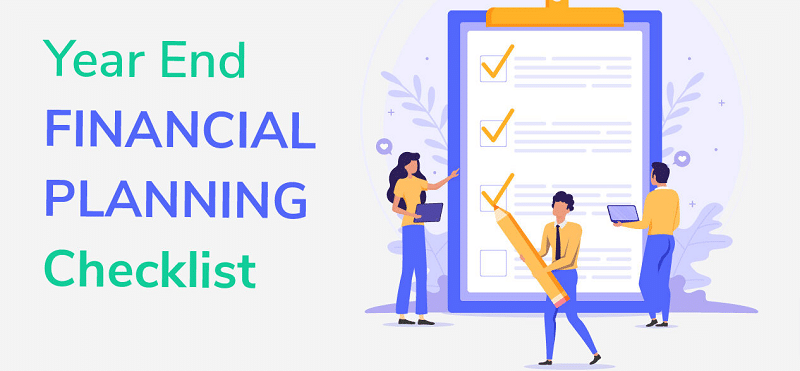Table of Contents

As the year comes to a close, it’s essential to assess your financial situation and plan for a prosperous 2023. Year-end financial planning is a crucial step in ensuring that you are on track to meet your financial goals. In this article, we will provide you with a comprehensive year-end financial planning checklist, including strategies to optimize your investment portfolio and secure your financial future.
Review Your Budget
Start your year-end financial planning by reviewing your current budget. Analyze your spending patterns and identify areas where you can cut back. Are there expenses that can be reduced or eliminated to allocate more funds towards your financial objectives? Make the necessary adjustments to align your budget with your goals.
Explore Tax Incentives
In India, there are several income tax incentives that can help you save money. Consider investing in tax-saving financial products such as tax-saving fixed deposits, National Savings Certificates (NSC), and Public Provident Funds (PPF). These investments not only reduce your tax liability but also contribute to long-term wealth accumulation.
Evaluate Your Investment Portfolio
Assess the performance of your investment portfolio in relation to your financial goals. Are your investments yielding the expected results? It’s crucial to periodically review and rebalance your portfolio to maximize returns. Seek guidance from a financial advisor to make informed investment decisions.
Contribute to Retirement and Health Plans
Securing your long-term financial stability involves contributing to retirement and health plans. Ensure that you are maximizing your contributions to programs like the National Pension System (NPS) and the Employee Provident Fund (EPF). Additionally, consider obtaining a health insurance policy that provides adequate coverage for you and your family.
Pay Off High-Interest Debt
High-interest debt, such as credit card debt or personal loans, can be financially burdensome over time. Make it a priority to pay off these debts. You may explore options like debt consolidation or negotiating better repayment terms with your lenders to ease the financial strain.
Set Clear Financial Goals
Take some time to establish realistic financial goals for the upcoming year. Whether you aim to start a business, save for a home down payment, or fund your child’s education, having specific goals will help you stay motivated and focused. Create a plan to achieve these objectives by breaking them down into smaller, manageable milestones.
Conclusion
Year-end financial planning is a vital exercise to ensure your financial well-being. By following this checklist, you can take control of your finances, optimize your investment portfolio, and work towards a secure financial future.
Frequently Asked Questions (FAQs)
1. Why is year-end financial planning important?
Year-end financial planning allows you to assess your financial situation, make necessary adjustments, and set clear financial goals for the upcoming year. It ensures that you are on track to meet your objectives and secure your financial future.
2. What are some tax-saving investment options in India?
In India, tax-saving fixed deposits, National Savings Certificates (NSC), and Public Provident Funds (PPF) are popular tax-saving investment options that offer both tax benefits and long-term wealth accumulation.
3. How often should I review my investment portfolio?
It is advisable to review your investment portfolio at least once a year, preferably at year-end. However, you may consider more frequent reviews if there are significant market changes or life events.
4. What are the benefits of contributing to retirement and health plans?
Contributing to retirement and health plans like the National Pension System (NPS) and the Employee Provident Fund (EPF) ensures long-term financial stability and a secure retirement. Health insurance provides coverage for medical expenses, offering peace of mind.
5. How can I effectively pay off high-interest debt?
To pay off high-interest debt effectively, consider options like debt consolidation to lower interest rates or negotiating better repayment terms with lenders. Create a debt repayment plan and prioritize paying off the highest-interest debts first.